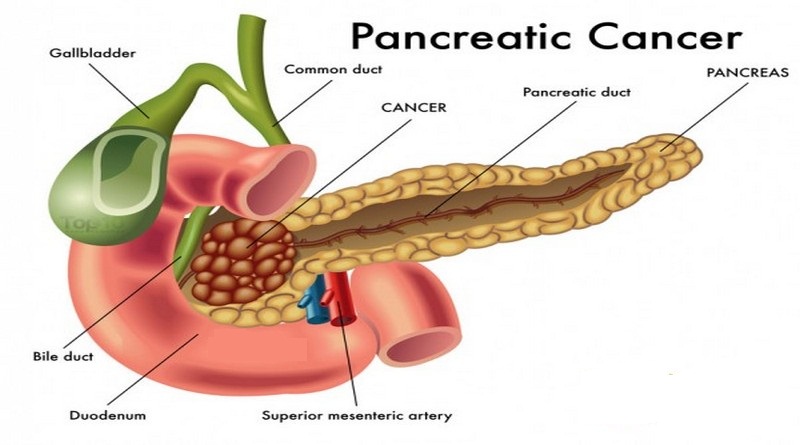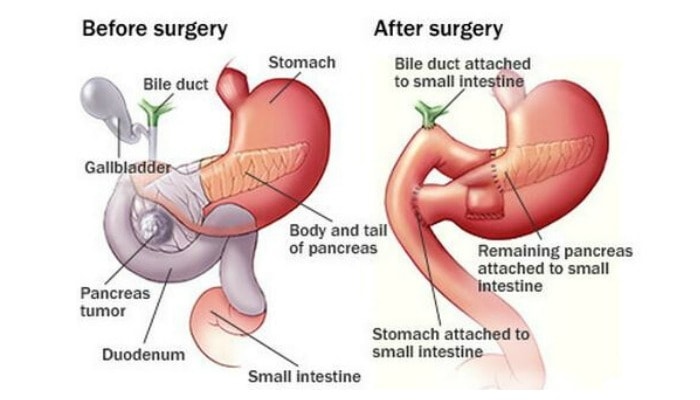

Pancreas is a hetrocrine gland ( having both endocrine and exocrine functions),  situated in the posterior aspect of the abdomen behind the lower part of the stomach. Its main function is to secrete digestive enzymes responsible for mainly protein and fat digestion and secretes Insulin and Glucagon hormones responsible for glucose metabolism.
situated in the posterior aspect of the abdomen behind the lower part of the stomach. Its main function is to secrete digestive enzymes responsible for mainly protein and fat digestion and secretes Insulin and Glucagon hormones responsible for glucose metabolism.
Pancreatic Cancer is a disease where cancer cells originates in the pancreas. It occurs because of the mutation in the cells of the pancreas causing them to grow in an uncontrolled manner. Most pancreatic cells occur in the cells of the lining ducts of the pancreas and result in the formation of Adenocarcinoma. These are usually very rapidly spreading tumours and at the time of diagnosis majority of the patients with pancreatic cancers are beyond cure. When detected early ( in approx. 20% of the cases) surgery remains the mainstay of curative management supplemented by chemotherapy and/or radiotherapy based on the biopsy report of the resected tumour.
.png)
No definite cause, contributory factors may be smoking, genetic predisposition.
Weight loss, Progressive Jaundice, Intractable Pain and Bowel Obstruction.
.jpeg)
Staging of the Pancreatic Cancer is determined by the above tests but final staging is assessed on the resected specimen after a successful Surgery.
Depends upon the staging of the cancer -
Stage I and II require upfront Surgical management. Type of the Surgery depends upon the location of the tumour ( Head & Neck region- Whipple's resection, Body and Tail region- Distal Pancreatectomy).
Surgery at our centre is usually done by Minimally Invasive Technique ( Laparoscopic & Robotic) with just tiny cuts over the abdomen. This technique is having advantages of lesser wound and wound related complications and earlier discharge from the hospital. There is also less intraoperative blood loss as compared to the traditional Open surgical procedure and earlier return to activity.
 |
 |
If post operative chemotherapy is needed as an additional treatment option based on the biopsy report and final stage, one can start the chemotherapy at an early stage as there will be no wound related issues with the surgery. This may results in better and long term survival after surgery. Major risks with the surgery are- postoperative pancreatic fistula formation and bleeding. The incidence of postoperative complications decreases if the surgery is done at a high volume and specialised centre.

Dr. Neeraj Dhamija expertise in Minimally Invasive Surgery (Laparoscopic & Robotic) of the Abdomen with special interest in Pancreatic Surgery. Currently working as, a consultant in the Department of Laparoscopic & General Surgery in the prestigious Sir Ganga Ram Hospital, Delhi-India.
Copyright © Laparoscopic & Robotic Gastrointestinal Surgery. All rights reserved.
satta king gali